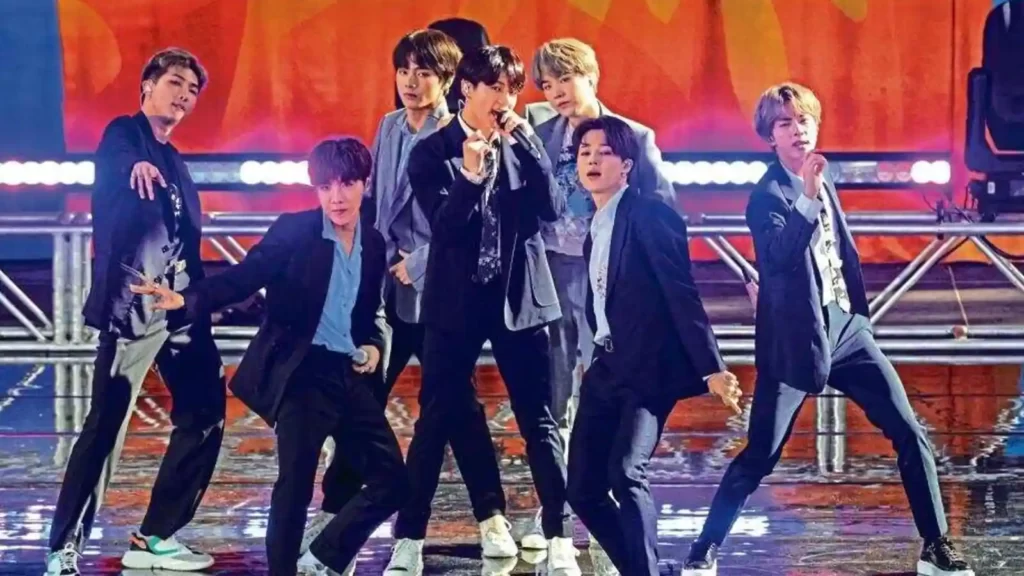The Global Impact of K-Pop

K-Pop seems to have cracked a winning formula which has churned many bands and multiple hits making it a global phenomenon
The concept that South Korean popular culture has exerted a huge influence on the world at large is known as “Hallyu,” or “the Korean wave.”
K-Pop is comparatively recent, evolving from a regional phenomenon to a cultural force with hits globally regularly due to the music’s catchy sound and carefully manicured idols. The mysterious sector’s renowned fanbases continue to serve as an example for the rest of the international music industry.
K-Pop has expanded from a mostly Asian audience to one that spans the world. It has managed to break through barriers in the previous decade and gain a growing international fanbase, although its popularity is most strongly correlated with proximity to the country of origin. Strange as it may seem, this is owing, in part, to the fact that exports are the primary driver of the South Korean economy. Various Korean enterprises, from electronics to gaming, have paved the way for K-Pop to become a global phenomenon.
The very foundations of K-Pop are based on the idea of universal appeal. An appealing musical form that has succeeded in bridging cultures is Pop music, which is characterised by upbeat rhythms, dances, and interesting-sounding lyrics sung by youthful stars. Incorporating elements from other cultures has helped K-Pop grow from a uniquely Korean musical form to a fully international cultural force and ‘soft power’ for Korea.
What distinguishes K-Pop from other musical styles are the innovative music videos, expansive definitions of skill, and relentless dedication of its artists. These are the factors that have contributed to K-Pop’s unprecedented success.
- Unique Personas
K-Pop stars are also recognised for their eccentric, flashy, and enticing personas. In Asia, K-Pop singers are often referred to as “idols,” and they are famed for their ability to stand out from the crowd and express themselves in novel ways.
- Grooming & Training
Unlike young western pop stars who often grow famous in a short period, K-Pop artists are usually groomed and mentored by managers or agents for years at a time before recording their first song.
Intensive training, never less than a year, makes these young artists look like seasoned performers by the time they debut. It’s no wonder even young kids are expected to go through this rigorous schooling since their dance routines and schedules become so insanely demanding.

- The Art Of Costuming
The music videos in the K-Pop genre are known for their vivid colours and elaborate outfits. The music videos are very sophisticated and well-produced. The use of special effects, makeup, costumes, and everything else is always subservient to a larger theme and concept.

- Fashion
K-Pop singers add a whole new meaning to fashion. Their real-life fashions are often more daring and unique than those of western celebrities. The stars aren’t afraid to make waves, and they put their spin on the latest music and fashion.

- Narrative/ Story
K-Pop’s continued success may also be attributed to the widespread use of engaging narratives in the genre’s songs and music videos.
- Memorable Melodies
Without memorable melodies and words to sing along with, pop music would be nothing. K-Pop is no different, making use of songs that are instantaneously lodged in your brain.
There is a science behind K-Pop’s attractive songwriting, which makes their music engaging to listeners.
- Dance & choreography
In addition to songwriting, K-pop stars also rule the dance scene. Groups not only sing and dance, but they also do routines so sophisticated and hard, that would ordinarily need highly experienced dancers.
K-pop musicians are renowned for doing these routines live, demonstrating they are actually adept and not simply expertly edited in music videos. This requires an inhuman amount of hard work, practice, and expertise.
- Multi-talented performers
In addition to singing and dancing, K-Pop stars often star in music videos. True K-pop idols are largely great actors as well as singers and dancers.
The youngsters are skilled, making them far from the superficial marketing ploy that many singers in North America and Europe are.
The prevalence of K-Pop stars in starring roles at the same time as their music career, across several mediums is common.
- Multi-lingual
K-Pop acts incorporate elements of different cultures into their music. Singers often include English phrases in their songs because of the widespread need to study the language among students.
This not only helps K-Pop musicians gain popularity in the West, but it also increases their popularity in Asia.
Conclusion
It remains to be seen, as K-Pop’s popularity rises, whether the worldwide interest in this music is a fad or the beginning of a more permanent movement. K- Pop’s meteoric growth in popularity around the globe and in the West was an unexpected phenomenon, and it remains to be seen whether or not it can establish firm foundations as a musical genre. However, K-Pop has shown to be a catchy and enduring art form, further cementing the genre’s place as one that is gaining popularity throughout the globe.
References
https://www.lifehack.org/articles/lifestyle/wondering-why-pop-popular-here-are-10-reasons.html
https://www.vox.com/culture/2018/2/16/16915672/what-is-kpop-history-explained
https://www.bbc.com/culture/article/20190529-how-did-k-pop-conquer-the-world



